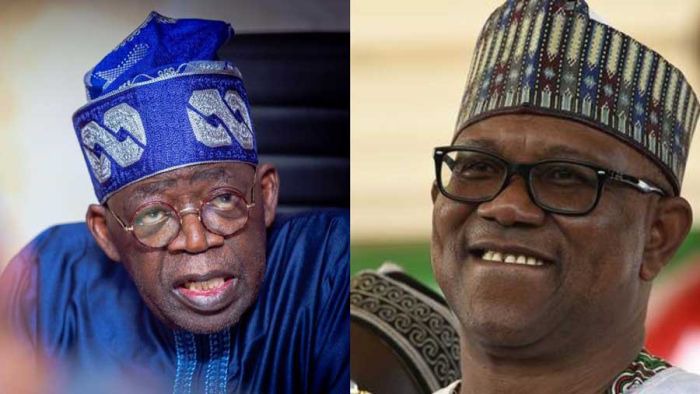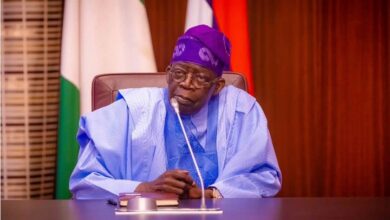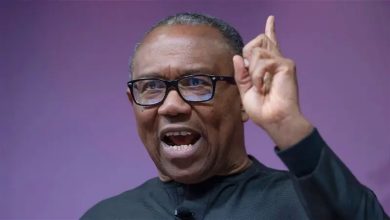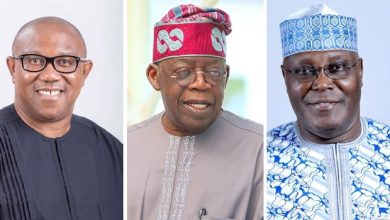Why Tribunal Shouldn’t Sack Me Over 30-Year-Old U.S. Court Judgement Cited By Obi – Tinubu

In their final response to the Presidential Election Petition Court (PEPC), President Bola Tinubu and Vice President Kashim Shettima explained why their electoral victory shouldn’t be thrown out due to a 1993 United States District Court ruling that required Tinubu to forfeit $460,000 believed to be drug trafficking proceeds.
Their legal team, led by Wole Olanipekun, SAN, argued that the narcotics forfeiture order in question was issued in 1993, which is 30 years ago, and that a conviction expires after 10 years under Section 137(1)(e) of the 1999 Constitution.
The arguments were included in the final written statement from the Tinubu and Shettima legal teams, which THE PUNCH was able to get on July 14.
According to The Punch, the speech was in response to a section of the petition from Mr. Peter Obi, the Labour Party’s presidential candidate, asking the PEPC to declare that Tinubu was ineligible to run in the February 25 presidential election or any other election in Nigeria because of the forfeiture order.
According to Dr. Livy Uzoukwu, SAN, a member of Obi’s legal team, Tinubu was punished in the United States for alleged drug trafficking, which is punishable by law in Nigeria, according to THE PUNCH.
Along with presenting the aforementioned judgment as exhibits before the court, they also summoned a witness to testify in that regard.
“The Petitioners further argue that Tinubu was ineligible to run for president at the time of the election due to a $460,000.00 (Four Hundred and Sixty Thousand United States Dollars) fine for a dishonesty-related offense, specifically drug trafficking, imposed by the United States District Court, Northern District of Illinois, Eastern Division, in Case No: 93C 4483 between: UNITED STATES OF AMERICA, v. Plaintiff FUNKO.
Before the court sets the date for judgment, the petition will be scheduled for adoption of written address at a later time.
In the meantime, Tinubu’s attorneys objected to the ruling Obi had referenced, claiming that even if there had been a criminal conviction, Nigerian law had made it ineffectual because the incident had occurred 30 years prior in 1993.
A situation that is graver and more powerful than a fictitious civil forfeiture in a foreign country has “become effluxed under the constitutional provision,” Olanipekun continued, even though the aforementioned portion of the 1999 constitution discusses conviction and punishment.
Olanipekun went on to say that none of Obi’s witnesses could locate even one instance of the word “fine” being used in any of the documents included in the US proceedings that were submitted as Exhibit.
According to Section 3 of the Reciprocal Enforcement of Foreign Judgements Ordinance and Foreign Judgement (Reciprocal Enforcement) Act, Tinubu’s team claimed that the aforementioned judgment had not been filed in Nigeria.
Olanipekun further argued that the judgment should not be relied upon in Nigeria because Obi’s witnesses could not provide any “certificate purporting to be given under the hand of a police officer” from the US “containing a copy of the sentence or order and the fingerprints of the [Tinubu] or photographs of the fingerprints of the [said 2nd respondent], together with evidence that the fingerprints of the person so convicted are those of the [2nd respondent].”
Olanipekun further informed the court that Tinubu had not been charged, tried, or sentenced and that the US judgment was the outcome of civil processes.
The learned silk argued that the court should define the 30-year-old US Judgement as Non-Conviction Based Forfeiture (NCBF), “that is, a forfeiture not associated with criminal conviction or sentencing,” without prejudice to Obi and his witnesses’ statements.
Olanipekun argued that because the aforementioned judgment was not criminal, it should not be considered a conviction for purposes of section 137 of the 1999 Constitution.
CREDIT: The Punch
ReporterFK (
)





